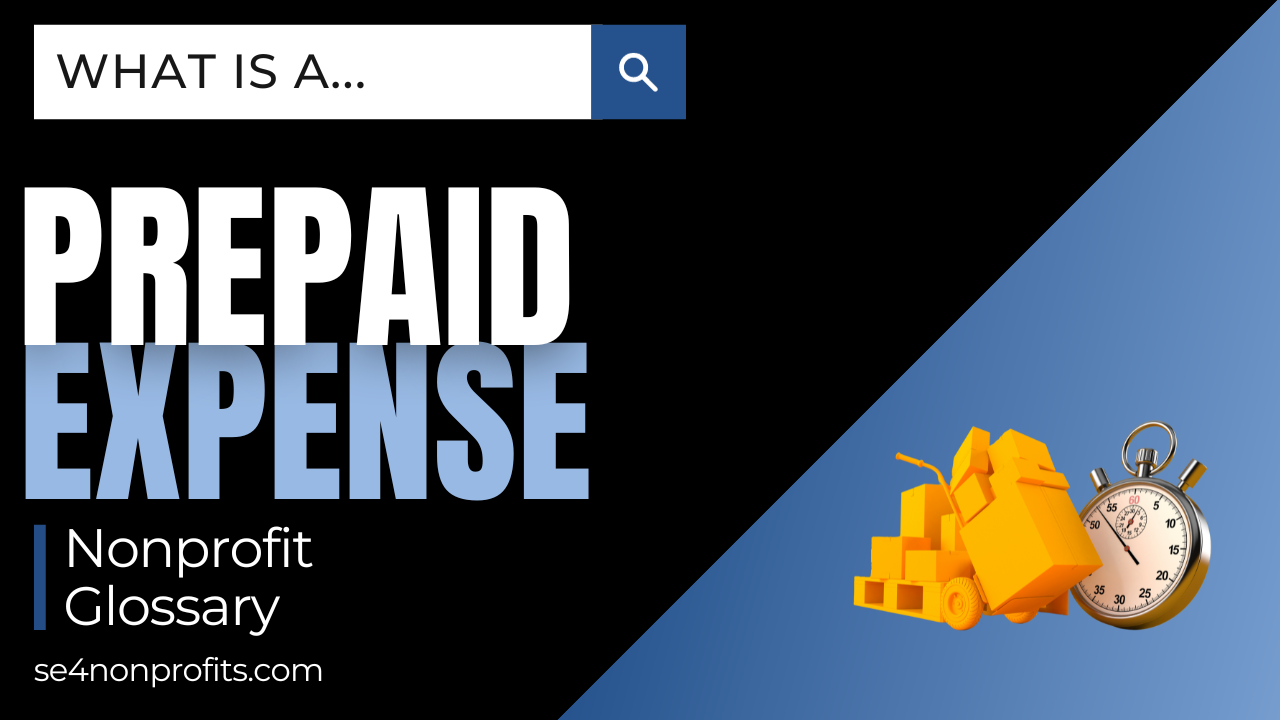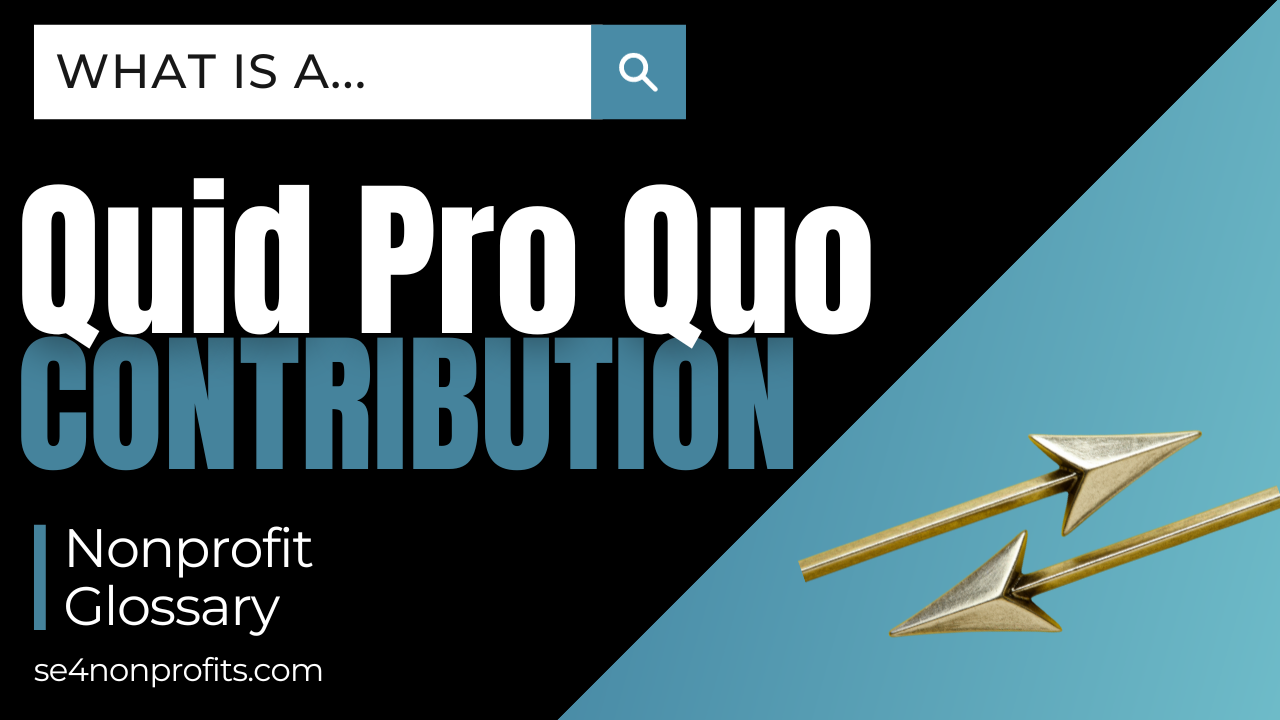
Blog.
Most Recent Posts

Q&A #162 – Can nonprofit volunteers deduct the value of their services as a charitable contribution?
The value of a volunteer’s time for in-kind services donated to a nonprofit organization is not tax deductible, and an organization should never state the dollar value of a volunteer’s services in an acknowledgment letter. However, it may be appropriate to provide volunteers with an acknowledgment letter that generally describes the services they provided so that volunteers can deduct certain eligible unreimbursed expenses.

Why Gift Acceptance Policies are Important and Must Be Periodically Reviewed and Updated
A gift acceptance policy fills many important roles for a nonprofit organization, including acting as a set of guidelines for fundraising efforts, a tool for risk management, and a protector of the organization’s good governance practices, mission, ethics, reputation, and culture. These characteristics are naturally sensitive to unexpected change and evolving economic conditions, so regularly reviewing and updating your organization’s gift acceptance policy is essential.

VIDEO: What is Deferred Income? | Nonprofit Glossary
SE4N's A. Michael Gellman provides a short summary of the definition of deferred income, why deferred income is a liability on a nonprofit organization’s balance sheet (statement of financial position), how deferred income impacts an organization’s operations and cash flow, and more.

Establishing a Form 990 Review and Approval Process
Many nonprofit organizations treat the annual Form 990 filing like a sprint at the end of a long 5K race. After the year is completed and the audited financial statements finally appear, the rush to get the Form 990 assembled and filed too often becomes a hectic “mad dash.” Formalizing the process for review and final approval of the Form 990 before filing will help to avoid mistakes, better reflect current conditions, and show the organization in the best possible light.

Q&A #161 – Can a foreign nonprofit organization qualify for 501(c)(3) status?
Charities formed outside of the United States may qualify for 501(c)(3) status so long as they satisfy the requirements that apply to 501(c)(3) organizations under U.S. law. This status makes it easier for foreign organizations to receive grants from U.S. private foundations and mitigate or avoid U.S. income tax on revenue received from U.S. sources. However, donors generally cannot use the charitable deduction under U.S. tax law for contributions made to organizations formed outside of the U.S., so many foreign organizations form affiliated “friends of” organizations in the U.S. for this reason.

The Best Nonprofit CFOs Go Beyond the Numbers
Chief financial officers (CFOs) occupy a unique position of leadership within a nonprofit organization’s senior management team. Often, CFOs are viewed only as protectors of financial assets, immersed in the numbers and devoid of strategic thought. CFOs must work harder to shed these images and venture beyond the numbers to be thought leaders, advocates for strategic change, and catalysts for innovation to help organizations grow and advance their mission.

Q&A #160 – Are nonprofit organizations subject to the Fair Labor Standards Act (FLSA)?
Many nonprofits are technically not subject to federal Fair Labor Standards Act (“FLSA”) wage and hour law requirements due to rules that limit FLSA applicability to organizations that meet certain “enterprise coverage” or “individual coverage” thresholds. However, this is often a moot point since nonprofits are usually subject to state wage and hour laws, many of which are built upon federal FLSA definitions and exemptions. Consequently, most nonprofits must monitor changes in federal FLSA rules carefully as these may have state law compliance implications.

VIDEO: What is an Unusual Grant? | Nonprofit Glossary
SE4N's Benjamin Takis provides a short summary of the term “unusual grant” and how this concept affects a 501(c)(3) nonprofit organization’s ability to pass the public support tests on Form 990 Schedule A, and avoid being tipped into private foundation status.

Why and How Nonprofits Use Limited Liability Companies (LLCs)
The Limited Liability Company (LLC) is a flexible and widely used entity structure in virtually every industry, from one-person businesses to some of the largest companies in the world. LLCs can also be useful as a subsidiary or joint venture vehicle for certain nonprofit programs or activities, but the use of single-member and multi-member LLCs in a nonprofit context is often misunderstood.

Q&A #159 – Should a nonprofit hire an investment advisor?
While nonprofit organizations are not legally required to use a professional investment advisor to help guide the organization with their investment management, most nonprofits correctly choose to work with a professional investment advisor. Delegating management of the investment portfolio to Board members is not a wise choice because this unnecessarily exposes the organization and its Board members to fiduciary risks related to potential compliance failures and performance shortfalls.

VIDEO: What is a Prepaid Expense? | Nonprofit Glossary
SE4N's A. Michael Gellman provides a short summary of the definition of a prepaid expense, how prepaid expenses show up on the balance sheet, and how prepaid expenses impact the operations of #nonprofit organizations.

VIDEO: Getting a Tax ID Number (EIN) for a New Nonprofit | 5-Minute Lessons 4 Nonprofits
SE4N’s Benjamin Takis provides a short lesson on how to get a tax ID number (also known as employer identification number or EIN) for a new nonprofit organization, including tips for how to most quickly and efficiently obtain the EIN and a guided walk-through of the process using the actual online application (Form SS-4) on the IRS website.

The Case Against Board “Give or Get” Policies for a Nonprofit Organization
For nonprofit organizations, especially public charities, individual Board member giving is almost always a sensitive subject. Board giving is usually an important benchmark for nonprofits and frequently is treated as a “badge of honor” when an organization can report that 100% of its Board members have made an annual contribution. Board “give or get” policies may help some organizations reach Board giving goals, but they are complex and often hard to enforce, quantify, and manage.

Q&A #158 – What happens if a fraudulent Form 1023-EZ is filed for my organization?
Despite what some unscrupulous service providers may tell you, there are potentially serious penalties for submitting a Form 1023-EZ application for an organization that is clearly ineligible to do so. In addition to revocation of 501(c)(3) status, this can include criminal fines and even prison pursuant to the Internal Revenue Code’s fraud and false statements provisions (26 U.S.C. § 7206). However, if a Form 1023-EZ was fraudulently filed without your knowledge, approval, or participation then these criminal sanctions very likely will not apply.

VIDEO: What is a Quid Pro Quo Contribution? | Nonprofit Glossary
SE4N's Benjamin Takis provides a short summary of the term "quid pro quo contribution," how it affects a donor's use of the charitable deduction, and what obligations to apply to nonprofit organizations that receive donations that are partly in exchange for goods or services.